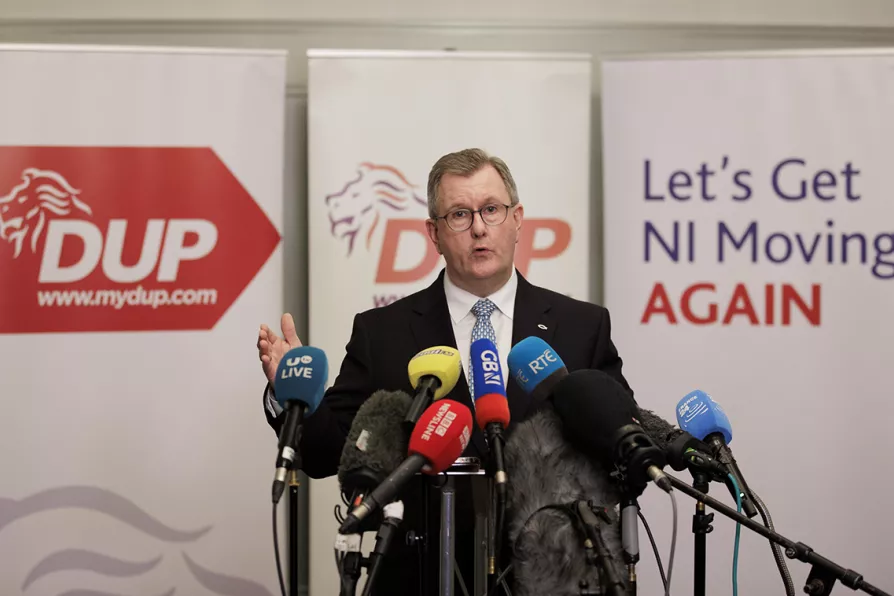
 DUP leader Jeffery Donaldson during a press conference at Hinch Distillery, Ballynahinch, after the DUP party executive held a private party meeting about going back into Stormont at Larchfield Estate, January 30, 2024
DUP leader Jeffery Donaldson during a press conference at Hinch Distillery, Ballynahinch, after the DUP party executive held a private party meeting about going back into Stormont at Larchfield Estate, January 30, 2024
SINN FEIN welcomed the decision by Northern Ireland’s largest British unionist party late on Monday to end a boycott that left the region’s people without a power-sharing administration for two years.
After a marathon late-night meeting, Democratic Unionist Party (DUP) leader Jeffrey Donaldson said today that the party’s executive had backed proposals to return to the government.
He said that agreements reached with the Westminster government “provide a basis for our party to nominate members to the Northern Ireland Executive, thus seeing the restoration of the locally elected institutions.”

The independent TD’s campaign has put important issues like Irish reunification and military neutrality at the heart of the political conversation, argues SEAN MacBRADAIGH













